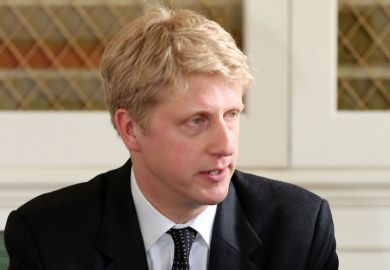UK higher education institutions are under increasing pressure to scrap their use of nine-month contracts after Durham University said that it would employ all teaching fellows for a minimum of 12 months from the coming academic year.
Nine-month contracts are widely used by universities recruiting scholars to cover term-time teaching duties – sometimes as cover for permanent staff on leave – but they are a key area of concern for early career academics who warn that the arrangement leaves them struggling to making ends meet and unable to fund their research over the summer.
Durham’s move follows a campaign by a group of academics, Durham Casuals, that was set up amid the UK’s pension strike earlier this year. In a statement, Antony Long, the university’s deputy vice-chancellor, said that the institution “recognises that our staff are key to our continuing success”.
A spokeswoman for Durham Casuals said that the institution’s decision was a “pivotal moment” in its campaign against “the casualisation of early career positions and the gig economy in academia”.
“We hope this will set a precedent for other universities to stop putting profit over people and recognise their duty of care to the early career researchers and postgraduates who are entering the profession in these precarious times,” the group told Times Higher Education.
Ben Mechen, a teaching fellow on a 12-month contract at UCL, said that the prospect of being paid over the summer had made “a big difference” to both his financial situation and his “sense of well-being”.
For academics on nine-month contracts, the “need to make ends meet over the summer prevents you from doing the research and writing that you need to do [in order] to secure a permanent job”, he added.
But Durham Casuals highlighted that nine-month contracts were “only part of the wider problem”. “While offering career opportunities to younger colleagues, 12-month contracts are still temporary contracts,” the spokeswoman said.
The new rule at Durham applies only to teaching fellow roles, she added, leaving assistant teaching fellowships and administrative posts unaffected. The group now intends to turn its focus to the use of hourly paid contracts and access to resources for casual staff.
Discontent over such issues has been brewing among scholars in recent years, with a 2016 report by the University and College Union claiming that more than half of all university staff are now employed on “insecure contracts”.
The proportion is said to be even larger for staff at more junior levels, who are more likely to be vulnerable in terms of job security and limited by the options available to them.
Emilie Murphy, lecturer in early modern history at the University of York, said that although Durham’s move indicated “an excellent start”, it was still too easy for academic institutions to advertise jobs that are “precarious and unethical”.
“The abundance of unemployed early career scholars desperate for work just encourages exploitation,” she told THE. “We need a major culture shift in the academy…I’d be delighted to see other universities follow suit, but I won’t be holding my breath.”
Register to continue
Why register?
- Registration is free and only takes a moment
- Once registered, you can read 3 articles a month
- Sign up for our newsletter
Subscribe
Or subscribe for unlimited access to:
- Unlimited access to news, views, insights & reviews
- Digital editions
- Digital access to THE’s university and college rankings analysis
Already registered or a current subscriber?








